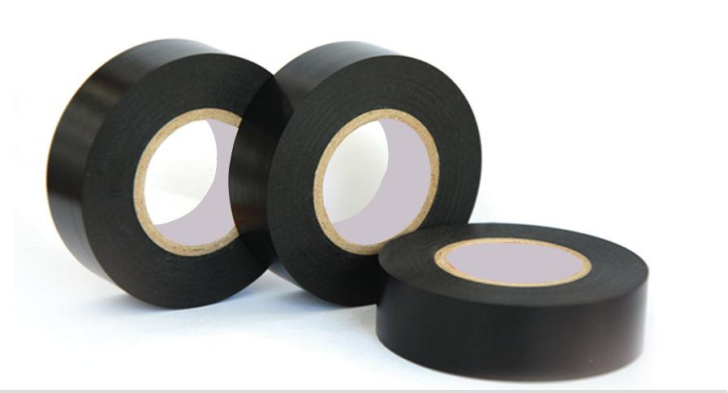Understanding Insulation Tape Types A Comprehensive Guide
Insulation tape is an essential component in various industries and DIY projects, providing electrical insulation, protection, and sometimes even aesthetics. With a diverse range of materials and specifications available, it's crucial to understand the different types of insulation tape to select the right product for your needs. In this article, we'll explore the most common types of insulation tapes, their characteristics, applications, and advantages.
1. PVC Insulation Tape
Polyvinyl chloride (PVC) insulation tape is the most widely used type of insulation tape in electrical applications. Known for its excellent insulating properties, PVC tape is durable, flexible, and resistant to moisture and abrasion. It typically comes in various colors, making it ideal for color-coding wires or identifying different circuits. PVC tape is commonly used in low- and medium-voltage applications, including automotive wiring, electrical repairs, and household wiring.
Advantages - High elasticity and flexibility - Resistant to temperature and moisture - Available in multiple colors for identification
2. Vinyl Electrical Tape
Similar to PVC tape, vinyl electrical tape is another popular choice for electrical insulation. It offers excellent stretchability, allowing for tight wrapping around wires and connectors. Vinyl tape also has a strong adhesive backing, which ensures that it stays in place even in challenging environments. It is widely used by electricians for insulation, splicing, and bundling wires.
Advantages - Superior durability and adhesion - Creates a strong seal against moisture and dirt - Can withstand high temperatures without melting
3. Rubber Insulation Tape
Rubber insulation tape is made from a self-fusing silicone polymer, providing excellent insulation and high-performance characteristics. This type of tape is particularly useful in outdoor applications or areas exposed to extreme weather conditions. It is capable of resisting UV rays, ozone, and various chemicals, making it ideal for industrial settings. Additionally, it has the unique capability of fusing to itself, forming a permanent bond that's resistant to water and air.
Advantages - Excellent weather and UV resistance - Self-fusing for a secure, waterproof seal - High elasticity to accommodate motion and vibration
insulation tape types

Fiberglass insulation tape is used primarily in high-temperature applications, such as in electrical equipment and automotive industries. This type of tape consists of fiberglass cloth coated with a high-temperature adhesive. It is capable of withstanding extreme heat, making it suitable for insulation in heat-intensive environments. Fiberglass tape is also resistant to chemicals and provides additional protection against abrasion.
Advantages - Exceptional resistance to high temperatures - Durable and robust against wear and tear - Suitable for both electrical insulation and thermal protection
5. Kapton Tape
Kapton tape is a specialized type of insulation tape made from polyimide film, known for its ability to withstand extremely high temperatures without degrading. It is commonly used in the electronics industry for insulating, protecting, and adhering electronic components during manufacturing processes. Kapton tape is also used in 3D printing to create smooth surfaces and improve adhesion.
Advantages - Exceptional thermal stability - Cuts down on static electricity, protecting electronic components - Resistant to chemicals and solvents
6. Aluminum Foil Tape
Though not a traditional insulation tape, aluminum foil tape has unique insulating properties that make it a popular choice in specific applications, particularly in heat management. It provides a reflective surface that helps redirect heat, making it ideal for HVAC systems, refrigeration, and duct work. Additionally, its adhesive backing allows for easy application over irregular surfaces.
Advantages - Highly effective thermal barrier - Strong adhesive for secure bonding - Reflective properties for heat management
Conclusion
Choosing the right type of insulation tape is crucial for ensuring safety and effectiveness in electrical installations and repairs. Whether you need flexibility, high-temperature resistance, or moisture protection, understanding the different types of insulation tapes available will help you make an informed decision. Always consider the specific requirements of your project, including the environment in which the tape will be used, before making your selection. With the right insulation tape, you can enhance safety, durability, and performance in your electrical applications.
-
XIANGFAN Rubber Tape-Ultimate Solutions for All Your Insulation NeedsNewsJun.24,2025
-
XIANGFAN Rubber Tape-Protection for Industrial and Residential ApplicationsNewsJun.24,2025
-
XIANGFAN Rubber Tape: Superior Safety and Sealing for Demanding EnvironmentsNewsJun.24,2025
-
XIANGFAN Rubber Tape: Reliable Solutions for Every Electrical ChallengeNewsJun.24,2025
-
XIANGFAN Electrical & Industrial Tape: Powering Reliability Across IndustriesNewsJun.24,2025
-
XIANGFAN Electrical & Industrial Tape: Excellence in Every ApplicationNewsJun.24,2025
